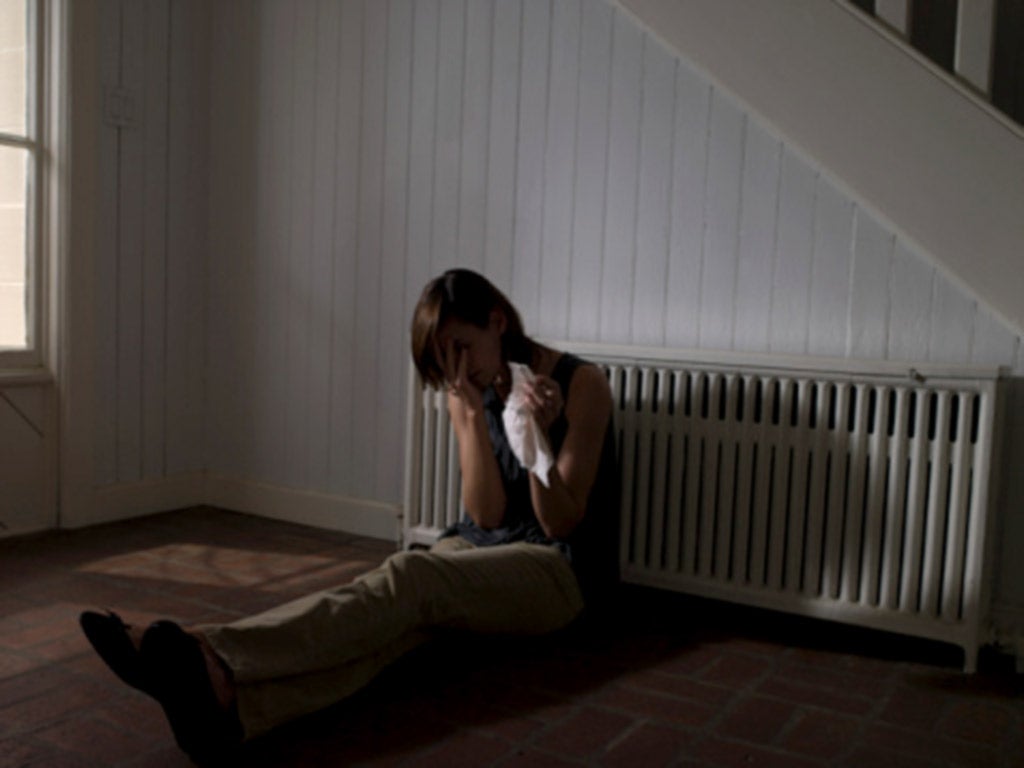Laurie Penny: Austerity and prejudice are ruining the lives of the mentally ill
A service that was already at breaking point begins to groan and snap.

Coming out is hard to do, especially in a live parliamentary debate. Last week, during a series of debates on mental health, Labour MP Kevan Jones told the House that he had a history of depression, appearing to swallow tears as he argued that parliament should no longer penalise representatives for having sought psychiatric treatment.
Dr Sarah Wollaston, Tory MP for Totnes, spoke of her post-natal depression, others of anxiety, obsessions and panic attacks. It takes guts to discuss mental ill health in many workplaces, never mind the House of Commons, so let's drop the delusion that having mental health problems makes you weak.
However, as new figures reveal that up to three-quarters of people with clinical depression, bipolar disorder and other conditions aren’t receiving any care, stigma isn’t the only problem with the state of mental health today. For people like Kevan Jones, stigma may well be the biggest challenge to overcome when they’re not feeling mentally well. For others, including several close friends of mine negotiating the bloodless, Dickensian disability benefits system, it comes somewhere behind poverty, austerity and institutional indifference in the obstacles placed in the way of recovery. Campaigns like Time to Change tell us that one in four people will at some point experience mental health problems - but they will experience them very differently depending on whether or not they are a wealthy professional.
Context is everything, and social context is usually overlooked when mental health is concerned, despite the fact that poverty and unemployment are still the biggest predictors of mental distress. The history of mental health in Britain is long and complex, but the potted version goes a little like this. From the 1800s until roughly 1970, mentally ill people were housed in large clinical institutions of varying quality, out of sight and mind of the rest of society. People with all sorts of mental health and learning difficulties lived in these places for years, from the type of full-blown mania where you see horrible things crawling out of the walls to elderly men with dementia and teenage girls with headaches, along with anyone else who propriety deemed disturbed, such as homosexuals or women who had had children out of wedlock.
Sometimes the care in these places was excellent, but sometimes it was less so, and many people were treated with surgery and electro- shock therapy against their will. Books and plays like Ken Kesey's One Flew Over the Cuckoo's Nest described the antiseptic dystopia of asylums in terms that, according to interview material with survivors, were not altogether exaggerated. In the locked wards, patients began to rebel, to organise, passing notes from bed to bed and refusing treatment en masse. Something had to be done.
Enter Margaret Thatcher. Thatcher heard the cries of desperate people living in large, valuable state-owned buildings. Reforms had already begun when she came to power, so disbanding the remaining asylums and flogging off the grounds was easily done. Building an alternative structure to take care of hundreds of thousands of unwell people, however, was harder. The solution was 'Care in the Community,' a system designed to ensure that mentally unwell people could live in society with the support of welfare payments, visits from social workers and community groups. For a short time, this idea worked, although conservative commentators began a thirty year tradition of wondering why there were suddenly so people claiming welfare for mental health reasons. But over time, the care, the support and the money were chipped away.
Fast forward to 2010. National mental health services are stretched like the skin of a balloon under a boot. A system which was once far too hands-on has become too hands off, abandoning the same vulnerable patients it once smothered. People now have the right to refuse treatment, but no right to receive it. Compassionate frontline staff lack the resources to deliver basic care. Most of those who would previously have been treated in hospital now survive on drugs and disability benefits, marginalised by poverty and prejudice rather than by physical removal. New medicines are available to treat some conditions, but they are not fully understood and often replace rather than supplement community care. Why pay a therapist to help a depressed secretary when you can just give him drugs that keep him numb enough to get to work without crying on the tube?
Then David Cameron becomes prime minister and unleashes a raging juggernaut of public sector cuts. A service that was already at breaking point begins to groan and snap. Harsh new eligibility tests are extended to everyone receiving sickness benefits, and the test is not designed to be easy for people with mental health problems to pass. Sometimes, the stress of being made to fill out long, complicated forms and sit through gruelling interviews under threat of financial ruin triggers major relapse or even, allegedly, suicide. Meanwhile, unemployment is soaring, and a Royal College of Psychiatrists report urges through gritted teeth that cuts be “mitigated in a context where demand for care will probably increase." Translation: austerity is kicking the crutches away from mental healthcare just when hundreds of thousands of workless, homeless, deeply depressed people need it most.
If you think you hear alarm-bells, it’s not all in your head. Overcoming prejudice against people with mental health problems in the workplace is one thing: forcing them into work they’re not well enough to cope with is quite another, and as benefits are cut and sick people frogmarched into low-paying jobs or left to languish on the dole, that’s precisely what’s happening.
Join our commenting forum
Join thought-provoking conversations, follow other Independent readers and see their replies
Comments
Bookmark popover
Removed from bookmarks